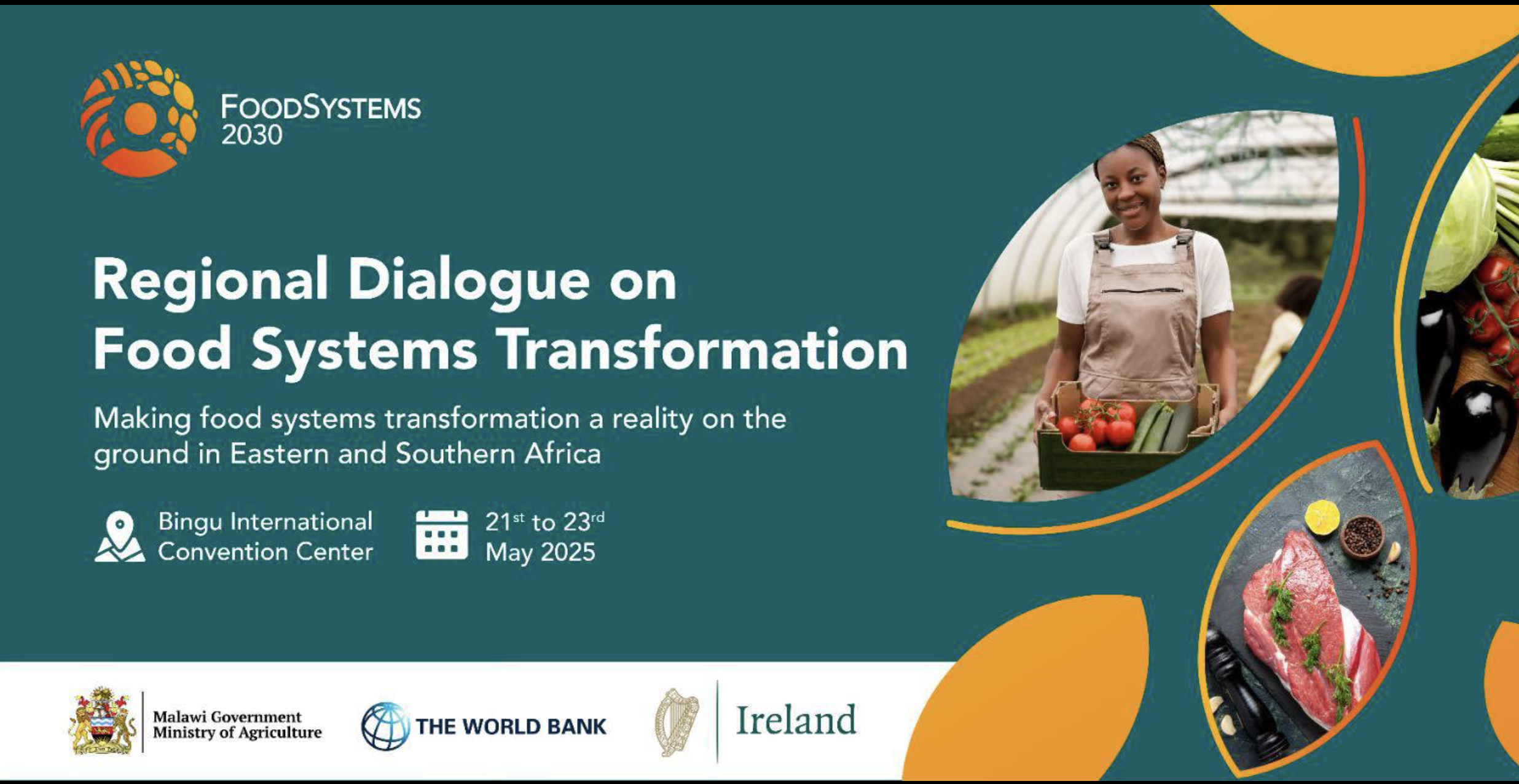
By Special Correspondent | Lilongwe, Malawi — May 2025
As climate-related challenges continue to threaten agricultural productivity and food security across Africa, Dr. Majola Bhekumthetho, a leading voice on agricultural research and development, delivered a powerful case for scaling Climate-Smart Agriculture (CSA) through structured regional collaboration, digital platforms, and community engagement.
Speaking on behalf of the Centre for Coordination of Agricultural Research and Development for Southern Africa (CCARDESA) at the Regional Dialogue on Food Systems Transformation in Lilongwe, Malawi, Dr. Majola emphasized that the region has the knowledge, tools, and evidence—but lacks the scale and connectivity needed to turn solutions into systems-wide transformation.
“We don’t need to start from scratch,” he stated. “What we need now is to scale, harmonize, and embed what works into national and regional food systems.”
From Innovation to Impact: CCARDESA’s Continental Footprint
Dr. Majola began his address by spotlighting the breadth of CSA technologies and practices already tested and validated across Southern Africa.
Through CCARDESA’s coordination and partnerships, the region now boasts:
- Over 329 Climate-Smart Agriculture Technologies, Innovations, and Management Practices (TIMPs) submitted by member states.
- Demonstration plots established in seven countries: Botswana, Eswatini, Malawi, Mozambique, Namibia, Zambia, and Zimbabwe.
- A Regional Curriculum for Farmer Field Schools on CSA, supporting capacity building at grassroots levels.
“These TIMPs represent years of research, farmer feedback, and adaptation to local conditions,” Dr. Majola explained. “They are proof that African solutions are available—we just need to connect the dots.”
Knowledge Products that Travel: From e-Libraries to Mobile Apps
CCARDESA is increasingly turning to digital tools to ensure knowledge travels faster and farther. Dr. Majola unveiled a range of platforms that support regional knowledge sharing, including:
- The SADC Agricultural Information and Knowledge System (SAAIKS) – a central digital hub for regional stakeholders.
- A CSA-focused mobile application with field-level guidance for extension agents and farmers.
- An online regional library of multimedia content, including technical briefs, animation-based learning, and CSA case studies.
- A regional e-catalogue featuring Climate-Smart TIMPs for easier access and adoption.
“This is our digital bridge across countries and institutions,” he said. “It allows a farmer in Namibia to learn from a pilot in Malawi or a project in Zambia.”
Importantly, these platforms are designed to be accessible in both low-bandwidth and offline environments, ensuring they reach remote rural communities.
Learning from the Ground Up: Demonstrations and Communities of Practice
Beyond digital infrastructure, Dr. Majola stressed the value of community-based knowledge dissemination. CCARDESA facilitates demonstration sites in partnership with local extension services and farmer organizations, enabling farmers to see CSA practices in action.
“These are not classroom lectures. They are interactive, community-driven sessions where farmers co-learn, experiment, and adapt,” he explained.
Moreover, CCARDESA is building Communities of Practice (CoPs)—cross-country knowledge networks that bring together researchers, practitioners, and policy actors to discuss challenges and innovations in real time.
According to Dr. Majola, such platforms are critical for institutional learning, where ministries, universities, and private actors can align on best practices and avoid duplicating efforts.
From Insurance to Ecosystem Services: Linking Innovation to Livelihoods
In one of the most compelling parts of his presentation, Dr. Majola showcased how CCARDESA is integrating CSA with livelihood-enhancing services. Examples include:
- Weather index insurance bundled with extension advice
- Funeral insurance integrated with farm-based savings groups
- Digital advisories linked to mobile payments and e-voucher systems
- Membership-based models like the Zimbabwe Farmers Union’s Ecofarmer initiative
“These are not just agricultural innovations—they are life innovations,” he said. “When resilience is paired with income protection, food security becomes achievable even in the face of shocks.”
A Regional Call to Action: Harmonize, Invest, Scale
Dr. Majola concluded with an emphatic call for regional alignment and investment. While acknowledging the progress made, he warned that fragmentation and underinvestment remain the biggest threats to widespread CSA adoption.
He urged:
- Member states to mainstream TIMPs into national agriculture and climate policies.
- Development partners to fund not just pilot projects, but long-term scaling initiatives.
- Private sector actors to invest in CSA tools and value chains that serve smallholders.
- Youth and women’s networks to be integrated as co-creators and champions of CSA solutions.
“The future of Southern Africa’s food systems will not be built country by country—it will be built together,” he concluded.
Final Reflection: From Fragmentation to Federation of Knowledge
Dr. Majola’s presentation painted a vision of a regional agricultural ecosystem that is collaborative, technology-enabled, and locally anchored. In his view, climate resilience is not an outcome—it is a mindset, one that must be shared across borders, institutions, and generations.
With its ever-growing repository of knowledge products, capacity-building tools, and farmer-led demonstrations, CCARDESA is proving that when Africa pools its wisdom, it creates something greater than the sum of its parts.
And as the climate clock ticks louder, that unity of purpose may well be the region’s most powerful innovation.

One thought on “Dr. Majola Bhekumthetho Urges Southern Africa to Scale Climate-Smart Innovations Through Regional Learning”
Comments are closed.